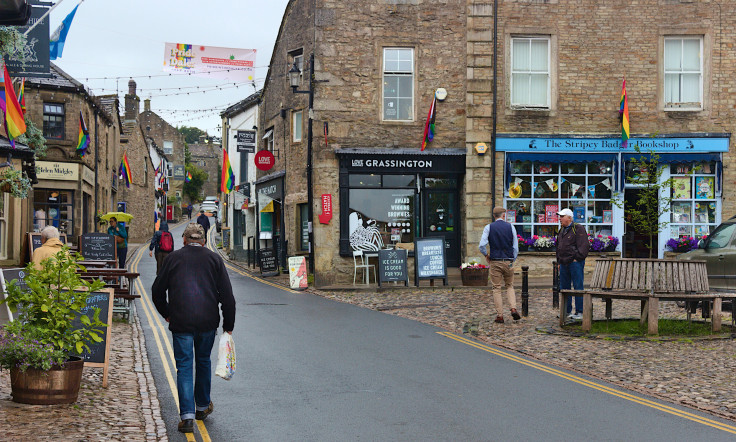UK Gambling Commission Executive Director States Not Every Betting Shop Can Be Monitored
Tim Miller says local authorities must take greater responsibility as pressure mounts for stricter gambling rules

The Executive Director of the UK Gambling Commission (UKGC), Tim Miller, has stressed that the Commission can't monitor every betting shop across the country. Miller pointed out the important role of local authorities in ensuring proper regulation.
His comments were made following a renewed debate in Parliament and the House of Lords over whether gambling reform is needed beyond the recent Gambling Act review.
A Call For Gambling Reform In the UK
Miller has publicly clarified the limitation of the UKGC's reach, claiming that it's not possible for the national regulator to police every betting shop across the UK. There is currently an intense ongoing debate in the UK about the future of gambling regulation in the country, with the Prime Minister, advocacy groups, opponents, and parliamentarians all weighing in.
While speaking to Peers for Gambling Reform (PGR) this week, Miller highlighted the importance of measured and effective regulatory enforcement. He cautioned against rushing into constant rounds of reform without first evaluating the existing measures.
'I sometimes worry that the public policy debate around gambling spends a lot of time trying to generate, and campaign on, new ideas yet gives limited attention to ensuring and assessing the effectiveness of those ideas once they're put into practice,' he said to assembled Lords.
Amid these ongoing discussions, some players are looking to alternatives beyond the UK's gambling framework, with many using offshore options that provide attractive games and more flexibility. These platforms have become a positive choice for gamers waiting for the UK government to reshape its gambling regulations.
The government is attempting to adapt the industry following its Gambling Act review, which took over two years to complete. Advocates for reform, including the PGT in the House of Lords and the All-Party Parliamentary Group for Gambling Reform (APPG) in the Commons, are arguing that the UK should modernise legislation for the digital times we live in.
More Power For Local Councils
A lot of the current discussion has focused on the role of local authorities in monitoring betting shops. Earlier this year, 38 councils signed an open letter calling for stronger powers to oversee gambling activity in their areas. The request has been repeated in Westminster, with MPs pressing for change.
During Prime Minister's Questions last week, Labour's Dawn Butler asked Keir Starmer whether the government planned to revisit the 'aim to permit' principle that forms a part of the Gambling Act. Critics argue that this principle favours operators looking for local licenses.
Starmer confirmed that the government would act and pledged to 'give councils stronger powers over the location and numbers of gambling outlets to help create safe, thriving high streets.'
Miller, however, indicated that local councils already hold a lot of responsibility when it comes to regulation, especially licensing. 'The power to grant premises licenses sits with local authorities in their role as licensing authorities,' Miler claimed. 'It also made clear that any licensing fees they charge must be used solely for the purpose of their local regulatory activities, which include premises inspections.'
He noted that this was by design of the statutory logic of the 2005 Gambling Act. The UKGC, based in Birmingham, does not have the capacity to monitor all the premises across the UK. Miller emphasised that councils are expected to exercise their scrutiny duties properly, with the Commission providing guidance.
'It cannot be the role of the national regulator to fill any gaps left in local regulation when less than half of licensing authorities are conducting any premises inspections, that the licensing fee funds them to perform,' he stated.
UKGC Sticking to Its Mission
Although betting shops and high-street gambling locations are at the centre of many current political conversations, a lot of the pressure for reform has come from the digital sector. Online gambling generates the largest share of gross gambling yield in the UK. This draws scrutiny from parliamentarians wanting to ensure the industry keeps up with modern standards.
Conservative Sir Iain Duncan Smith, leader of the APPG, has focused a lot of his attention on online gambling. Figures within the PGR, like Lord Foster of Bath, have also raised concerns, especially around advertising and sponsorships. Others have called for amendments that ban betting partnerships in football through the Football Governance Bill.
Miller, in his remarks to the PGR, recognised the need for reform while balancing rushed policymaking. He said that the UKGC's priority is to ensure the rollout of reforms already outlined in the Gambling Act Review White Paper, while also monitoring their impacts before implementing new measures.
'And so, I am unapologetic in saying that the Commission must and will remain focused on delivering the already considerable statutory roles that Parliament gave us,' he said. He concluded that the UKGC is committed to implementing the Gambling Act Review White Paper, whereafter there will be new evidence to inform future decisions.
© Copyright IBTimes 2025. All rights reserved.





















